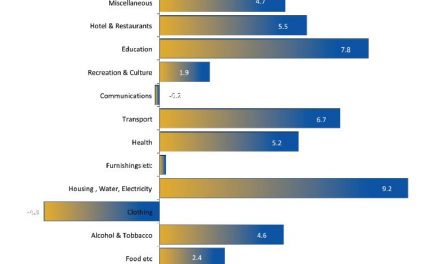
NEEEF contrary to international law
A German academic told a panel discussion earlier this week that the New Economic Equitable Empowerment Framework interferes with investment treaties and is not in line with legitimate and fair expectations under international law. The NEEEF Bill interferes with the ownership of private property and the constitutional provision of Willing Buyer, Willing Seller.
In a panel discussion held by the Konrad Adenauer Foundation, Prof. Dr. Matthias Herdegen, Chair for Public, European and International Law, at the University of Bonn, listed additional concerns he has with the bill including the gray area of defining a Previously Disadvantaged Person, and the impact it will have on trade.
He suggested further consultations on the bill with the Ministry of Industrialization, Trade and SME Development to determine how the bill will affect bi-lateral and multi-lateral trade relations. He said that a balance should be found between public and private sector interests, suggesting that pillar One (Ownership) and pillar Two (Management Control/Employment Equity) which are currently mandatory in the bill should be dropped, instead adopting alternatives such as developing the marginalized through employment, provision of shares, and human resource development.
The panelists included Suta Kavari , Vice Chairperson of the Economic Association of Namibia and Yvonne Dausab Chairperson of the Law Reform and Development Commission (LRDC). In his presentation on the subject, Kavari noted that Namibia is on the verge of a technical recession due to excessive government spending, water security and the collapse of oil prices in Angola resulting in the slow down of trade in northern Namibia.
Kavari stated that NEEEF is a regressive empowerment policy and will have little impact on the majority of people, saying “it will suck the life out of already starving people, if you want real economic empowerment, it should be based on merit and a space that allows for investment and business opportunities.” Kavari stressed that the bill will have an impact on risk evaluation of investment credit resulting in investors seeking other countries that are more economically favourable for investment.
Yvonne Dausab, the Chairperson of the LRDC however negated all these views saying “Investors want equitable treatment, that is the same thing Namibian people want. The majority of Namibian people should not be on the tail end of reaping the benefits of Namibia’s economy”.
Furthermore, Dausab articulated that in light of the LRDC’s 10-week consultations countrywide, there are certain issues identified around the text, language and manner how the NEEEF document reads, that are in violations of the constitution. “We have taken into account the views from the private sector, and investors, and the majority of motions propose dropping the Ownership, Management Control/Employment Equity. pillars” She said other generic concerns revolve around the ability of disadvantaged persons to take up ownership and assume executive management positions.
“The intention was never to allocate these shares for free, but was to treat it as a normal business transaction, however questions arise with regard to the funding, profile of business owners in Namibia as well as the classification who are the previously disadvantaged.” Dausab detailed.
In her last statements, Dausab reported that the LRDC has handed in its consultative report on the NEEEF bill with recommendations and areas of concern to the Office of the Prime Minister.











































